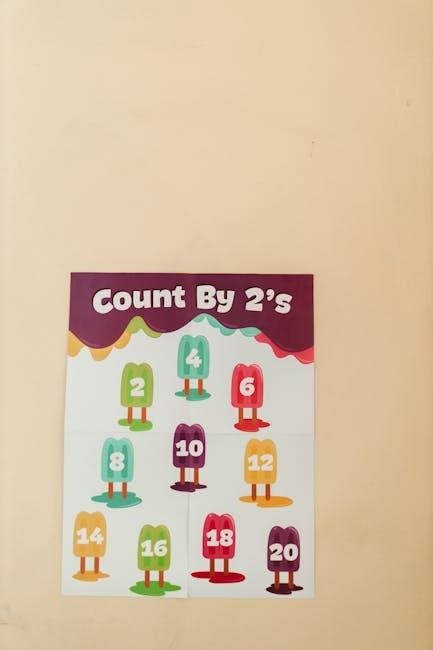Chapter 16 of The Giver is a pivotal moment in Jonas’s journey, marking his emotional awakening and growing awareness of his society’s flaws. The chapter highlights Jonas’s struggle with newfound memories, balancing joy and pain, as he begins to question the perfection of his community. His decision to stop taking the pill symbolizes his commitment to truth and sets the stage for future events.

1.1 Overview of the Chapter’s Significance
Chapter 16 of The Giver serves as a turning point, deepening Jonas’s understanding of emotions and memories. The Giver shares joyful memories, contrasting with the earlier pain Jonas endured, highlighting the complexity of human experience. This chapter underscores the societal trade-off between conformity and individuality, as Jonas begins to question the perfection of his community. His decision to stop taking the pill marks a symbolic shift toward truth and self-awareness, setting the stage for his growing rebellion.
1;2 Setting the Stage for Jonas’s Journey
Chapter 16 sets the stage for Jonas’s journey by intensifying his emotional and psychological transformation. The Giver shares memories of joy and pain, broadening Jonas’s understanding of human experience. Jonas’s decision to stop taking the pill reflects his growing commitment to truth and individuality, marking a turning point in his rebellion against societal norms. This chapter prepares readers for Jonas’s escalating internal conflict and his eventual quest for freedom and authenticity.
Key Themes in Chapter 16
Chapter 16 explores themes of emotions and memories, highlighting their absence in Jonas’s society. It also delves into freedom versus conformity, as Jonas begins to question his community’s perfection. The chapter emphasizes the burden of knowledge, showing Jonas’s struggle with his newfound awareness, and the importance of individuality, setting the stage for his growing rebellion.
2.1 The Concept of Emotions and Memories

In Chapter 16, emotions and memories are central to Jonas’s transformation. The Giver shares vivid memories of joy, such as birthday parties and family celebrations, which Jonas finds both confusing and exhilarating. These experiences reveal the superficiality of his society’s emotional control, as Jonas begins to understand the depth of human feelings. The chapter underscores the significance of memories in shaping individuality and highlights Jonas’s growing internal conflict as he grapples with these newfound emotions.
2.2 Freedom vs. Conformity in Jonas’s Society
Chapter 16 explores the tension between freedom and conformity in Jonas’s society. The rigid rules and emotional suppression enforced by the community are contrasted with Jonas’s growing desire for individuality and truth. The pill, a tool of control, dulls emotions and maintains conformity, but Jonas’s decision to stop taking it symbolizes his quest for freedom and authenticity. This conflict highlights the societal trade-off between order and personal autonomy, central to Jonas’s evolving perspective.
The Giver’s Role in Jonas’s Development

The Giver guides Jonas through emotional and psychological growth by sharing memories and wisdom, helping him understand the world’s complexities and his role in it.
3.1 The Giver’s Guidance and Support
The Giver provides Jonas with emotional and psychological support, offering comfort after traumatic memories like the war experience. He shares joyful memories, such as birthday parties and family celebrations, to balance Jonas’s newfound awareness of pain. The Giver’s guidance helps Jonas understand the true nature of his society, fostering his growth and preparing him for the challenges ahead. His support is crucial in Jonas’s journey toward self-discovery and understanding.
3.2 The Transfer of Memories and Their Impact
In Chapter 16, The Giver transfers a memory of a Christmas celebration to Jonas, introducing him to the concept of family and grandparents. This memory confuses Jonas, as such family structures do not exist in his society. The transfer of memories broadens Jonas’s understanding of emotions and individuality, highlighting the lack of these elements in his community. These memories profoundly impact Jonas, deepening his awareness of the trade-offs made for societal “utopia” and fueling his growing dissatisfaction with its limitations.

Jonas’s Emotional and Psychological Growth
Jonas experiences profound emotional and psychological growth in Chapter 16, as he grapples with the weight of newfound memories and their implications on his understanding of society.
4.1 Jonas’s Struggle with His Newfound Awareness
Jonas faces internal conflict as he processes the depths of human emotions and memories, grappling with the reality of his society’s superficial perfection. The Christmas memory confuses him, revealing a world of love and family he never knew, while his decision to stop taking the pill symbolizes his commitment to embracing truth and rejecting conformity, marking a turning point in his journey toward self-awareness and rebellion.
4.2 The Burden of Knowledge and Its Consequences
In Chapter 16 of The Giver, Jonas grapples with the burden of knowledge, experiencing profound emotions and memories that reveal the societal trade-offs. The Christmas memory, filled with love and family, contrasts sharply with his community’s emptiness, causing internal conflict. This newfound awareness isolates Jonas, forcing him to bear the weight of truths his society ignores, leading to a path of rebellion against conformity.
The Community’s Structure and Control
The community in The Giver operates under strict rules and regulations, suppressing emotions and individuality to maintain conformity. This rigid structure ensures sameness and control, enforced by the Committee of Elders, highlighting the trade-off between order and freedom.
5.1 The Rules and Regulations Governing Society
The society in The Giver is governed by strict rules designed to maintain sameness and control. These regulations suppress individuality, emotions, and freedom, enforcing conformity through the Committee of Elders. Rules dictate every aspect of life, from family structure to career assignments, ensuring no deviation from societal norms. This rigid system prioritizes order and efficiency over personal choice, creating a society where citizens surrender their autonomy for the illusion of utopia.
5.2 The Lack of Family and Individuality
In Jonas’s society, traditional family structures are absent, replaced by communal living arrangements. Individuals are stripped of personal identity, with roles assigned by the Committee of Elders. The concept of family is reduced to shared living units, erasing emotional bonds and heritage. This lack of individuality extends to clothing, language, and even emotions, fostering a culture of sameness. Jonas’s newfound memories reveal the richness of family and love, highlighting the void in his society.

Symbolism in Chapter 16
The pill symbolizes emotional suppression in Jonas’s society, while the Christmas memory represents family love and individuality. These symbols highlight the trade-off between control and human connection.
6.1 The Significance of the Pill and Its Purpose
The pill in The Giver is a symbolic tool used to suppress emotions, maintaining societal conformity. Its purpose is to dull feelings, preventing citizens from experiencing true emotions or desires. By stopping the pill, Jonas regains emotional depth, highlighting the trade-off between control and authentic human experience. This act is a rebellion against the society’s oppressive measures, emphasizing the pill’s role in maintaining the community’s “utopian” facade. The pill’s significance underscores the themes of freedom and individuality.
6.2 The Symbolism of the Christmas Memory
The Christmas memory in Chapter 16 symbolizes love, family, and individuality, contrasting sharply with Jonas’s society. It introduces concepts like grandparents and traditions, emphasizing emotional connections absent in his community; The memory highlights the beauty of human bonds and personal experiences, reinforcing Jonas’s growing awareness of his society’s flaws. This memory serves as a catalyst for Jonas’s desire for authenticity and connection, challenging the community’s uniformity and control.
Jonas’s Relationship with His Father
Jonas views his father as distant, constrained by societal norms. Their relationship lacks emotional depth, reflecting the community’s suppression of individuality and familial bonds, fueling Jonas’s longing for connection.
7.1 The Dynamics of Their Relationship
Jonas’s relationship with his father is formal and emotionally distant, typical of their society’s suppression of individuality. His father, adhering to community norms, lacks warmth, causing Jonas to feel isolated. This dynamic underscores Jonas’s growing desire for authentic connections, contrasting with the memories of family bonds he receives from The Giver, deepening his awareness of societal flaws and fueling his journey toward self-discovery and rebellion against conformity.
7.2 Jonas’s Feelings Towards His Father
Jonas feels a deep emotional distance from his father, whose strict adherence to societal norms prevents genuine connection. This detachment fuels Jonas’s longing for authentic relationships. The Giver’s memories of love and family intensify Jonas’s sense of loss, making him question his father’s role and the community’s values. This emotional conflict highlights Jonas’s growing awareness of the void in his life and his desire for meaningful bonds, contrasting sharply with his father’s conformity to societal expectations.

The Climax of the Chapter
Jonas’s decision to stop taking the pill marks the climax, as he chooses to embrace true emotions and memories, rejecting societal control and seeking authentic experiences and truth.
8.1 Jonas’s Decision to Stop Taking the Pill
Jonas’s decision to stop taking the pill is a bold move, driven by his growing awareness of emotions and memories. The pill, designed to suppress feelings, no longer aligns with his desire for truth. By rejecting it, Jonas embraces the full spectrum of human emotions, marking a significant shift in his journey. This choice underscores his commitment to authenticity and sets the stage for deeper understanding and conflict in his society.
8.2 The Implications of This Decision
Jonas’s decision to stop taking the pill carries profound implications, as it allows him to experience true emotions and memories. This choice isolates him further from his community, making others suspicious of his behavior. By rejecting the pill, Jonas risks societal punishment but gains deeper understanding and connection to humanity. His decision also sets the stage for future actions, as he becomes more determined to uncover the truth about his world and challenge its norms.
Chapter 16 concludes with Jonas embracing his newfound awareness, setting the stage for significant events in Chapter 17. His decision to stop taking the pill underscores his commitment to truth, foreshadowing a deeper exploration of his society’s secrets and his evolving role as a catalyst for change.
9.1 The Aftermath of Jonas’s Choice
Jonas’s decision to stop taking the pill in Chapter 16 leads to heightened emotions and vivid memories, intensifying his awareness of truth. The Giver continues to guide him, offering comforting memories to ease his burden. However, Jonas’s relationships, particularly with his father, grow strained as his newfound understanding clashes with societal norms. His choice marks a turning point, propelling him toward questioning authority and seeking answers, ultimately preparing him for the challenges ahead.
9.2 Preparing for the Events of Chapter 17
Jonas’s decision to stop taking the pill and his growing awareness of truth set the stage for the events of Chapter 17. The Giver continues to guide Jonas, sharing memories of love and family, which deepen Jonas’s understanding of emotions. As Jonas prepares for the challenges ahead, his relationship with the Giver strengthens, and he becomes more determined to uncover the secrets of his society, leading to a pivotal moment in his journey toward freedom and truth.
